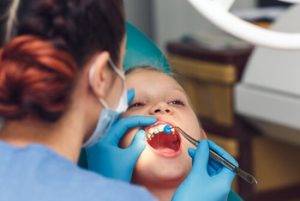Have you ever woken up with an aching jaw or unexplained headaches? You might be experiencing something more common than you realise. Many people grind their teeth without even knowing it, especially while asleep. This habit can slowly wear down your teeth and create discomfort in ways that affect your daily life. Understanding what causes teeth grinding is the first step towards finding relief and protecting your oral health. In this guide, we explore the possible reasons behind this condition and share practical strategies to manage it effectively.
What Is Teeth Grinding?
Teeth grinding refers to the involuntary clenching or grinding of the teeth, often happening unconsciously during sleep or waking hours. It can occur occasionally or develop into a persistent habit that leads to various dental and muscular issues.
What Causes Teeth Grinding? Exploring the Underlying Factors
Many factors can contribute to teeth grinding, ranging from physical to emotional triggers. Knowing what increases the likelihood of this behaviour can help you take proactive steps to address it.
The Link Between Stress and Muscle Tension

The muscle tension created by clenching increases pressure on the jaw joints and surrounding areas. Over time, this can cause jaw pain and even neck pain from the strain placed on nearby muscles. Learning to deal with stress effectively is key to reducing the frequency of teeth-grinding episodes.
The Impact of Sleep Disorders on Grinding Habits
Some individuals grind their teeth because of underlying sleep disorders. Conditions like obstructive sleep apnea or other sleep-related disorders can disrupt normal breathing patterns during sleep. The body may respond by activating muscle movement in the jaw to reopen the airway, leading to tooth grinding. In people with sleep apnoea, the lower jaw may shift forward repeatedly through the night, increasing the risk of tooth wear and damage. Those diagnosed with sleep bruxism often show signs of grinding in conjunction with disrupted breathing or poor sleep quality. Identifying and treating the sleep disorder can help prevent further tooth damage.
Certain Medications and Medical Conditions That Play a Role
Taking specific medications has been linked to a higher chance of developing bruxism. Certain medications prescribed for mental health conditions, including those used for attention deficit hyperactivity disorder, can contribute to involuntary clenching or grinding. Attention deficit hyperactivity disorder is a neurodevelopmental condition characterised by difficulties with attention, impulsivity, and hyperactivity.
Additionally, some medical conditions such as gastroesophageal reflux disorder have been associated with increased grinding behaviour. Gastroesophageal reflux disorder occurs when stomach acid frequently flows back into the oesophagus, resulting in symptoms like heartburn and irritation. These conditions can affect muscle control or increase discomfort that indirectly leads to tooth grinding. Speaking with a healthcare provider about possible medication side effects can offer valuable insights.
Lifestyle Factors That May Trigger Grinding
Several lifestyle habits have been identified as contributing factors to teeth grinding. People who regularly consume more than six cups of caffeinated drinks or engage in alcohol consumption are more likely to grind their teeth. Recreational drugs have also been linked to increased grinding tendencies.
Even habits like chewing gum frequently throughout the day can encourage the jaw muscles to stay tense, reinforcing grinding behaviour. Reducing these risk factors can support efforts to stop grinding teeth and protect overall health.
Family History and Genetic Predisposition to Grinding
Research suggests that genetics may play a role in teeth grinding. If close relatives have a history of bruxism, there may be a higher chance of children grinding their teeth or adults developing the habit. Family patterns in muscle activity, jaw structure, or stress responses could contribute to this shared tendency.
While genetics alone do not determine grinding habits, understanding family history can help identify risks early. This knowledge empowers individuals to monitor symptoms of teeth grinding and seek appropriate care when needed.
How to Manage Teeth Grinding? Practical Strategies for Relief
Managing teeth grinding involves a combination of lifestyle adjustments, dental interventions, and self-care practices. The following approaches offer effective ways to reduce discomfort and protect oral health.
Using a Mouth Guard for Protection
Wearing a mouth guard at night is one of the most common ways to prevent further tooth damage. A night guard provides a cushioning barrier between the teeth, absorbing the forces created during grinding. This protective device reduces the risk of cracked teeth, loose teeth, and sensitive teeth caused by repeated contact. Custom fitted mouth guards from a dentist offer better comfort and durability than store bought versions. Wearing a dental splint consistently can also ease symptoms over time.
 Improving Sleep Habits and Environment
Improving Sleep Habits and Environment
Establishing good sleep hygiene supports overall health and may reduce the frequency of teeth-grinding episodes. A calming bedtime routine, a dark and quiet bedroom, and limiting screen exposure before sleep all contribute to better rest. Poor sleep quality increases the likelihood of sleep problems and muscle tension that can lead to grinding. For some, addressing night terrors or other disruptive sleep issues helps lessen involuntary clenching. Focusing on restful sleep reduces triggers that contribute to grinding behaviour.
Managing Stress Through Relaxation Techniques
Since stress is a significant factor in grinding, learning stress reduction methods can make a difference. Relaxation techniques such as deep breathing, meditation, or gentle stretching before bed help calm the mind and body. Practising relaxation lowers the chance of jaw clenching or involuntary clenching during waking hours. Incorporating stress reduction strategies into daily routines builds resilience and improves mental well-being. These approaches support long term relief by addressing underlying triggers.
Scheduling Regular Dental Check Ups for Monitoring
Visiting a dentist regularly allows for early detection of tooth wear or signs of bruxism. A dentist can examine the teeth for changes in enamel, fractures, or other indicators of grinding. Early intervention helps prevent more serious problems, such as damaged teeth or tooth loss. Regular dental check ups also provide an opportunity to adjust protective devices or recommend additional treatments. Staying proactive supports ongoing oral health and reduces risks associated with grinding.
Avoiding Hard Foods and Minimising Jaw Strain
Choosing softer foods and avoiding hard foods that require excessive chewing can reduce strain on the jaw joints. Foods that are tough or crunchy may increase muscle fatigue and discomfort for people who grind their teeth. Being mindful of eating habits lowers the workload on jaw muscles during meals. Limiting chewing gum use also prevents the jaw from remaining in a clenched position for long periods. Gentle dietary choices support pain relief and muscle relaxation.
Long-Term Risks of Untreated Teeth Grinding
Ignoring teeth grinding may seem harmless at first, but the long-term effects can lead to serious dental and muscular problems. Over time, continuous grinding places excessive force on the teeth, causing gradual wear and damage that worsens without intervention.
Tooth Wear and Fractures
Persistent grinding slowly erodes the protective enamel, making teeth more prone to sensitivity, cracks, and fractures. Weakened enamel increases the risk of tooth decay, exposing the inner layers to bacteria and potential infection.
Jaw Joint Strain and Discomfort
Constant pressure on the jaw joints may result in chronic discomfort or pain. The temporomandibular joint can become inflamed, leading to difficulty opening the mouth or a clicking sound during movement. Left untreated, this strain may develop into a more complex joint disorder requiring extensive care.
Changes in Bite and Tooth Alignment
As grinding shifts the position of teeth, bite changes can occur. This misalignment may cause uneven chewing, additional wear on other teeth, and challenges in maintaining oral hygiene. Addressing teeth grinding early helps prevent these complications and protects overall oral health. Regular dental visits allow for timely detection and personalised solutions.
Taking Control of Teeth Grinding: Your Path to Relief

If you suspect you grind your teeth or experience related discomfort, we encourage you to visit our clinic for a comprehensive evaluation. Our team can help diagnose bruxism and recommend personalised teeth grinding treatment options to support long term relief. Call us today on (02) 6188 7103 to schedule your appointment and take the next step towards a healthier, more comfortable smile.
References
https://www.betterhealth.vic.gov.au/health/conditionsandtreatments/teeth-grinding
https://www.webmd.com/oral-health/teeth-grinding-bruxism


 Improving Sleep Habits and Environment
Improving Sleep Habits and Environment




